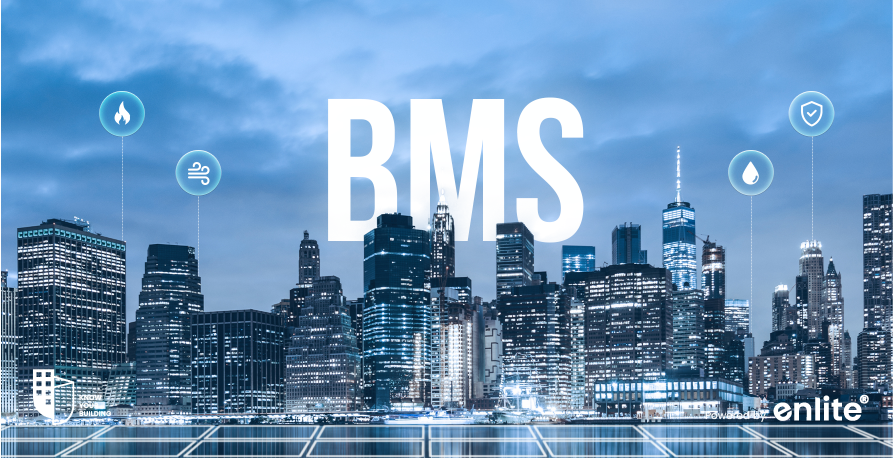Introduction
The commercial real estate landscape is evolving, and smart building technology is at the forefront of this transformation. Traditional Building Management Systems (BMS), while effective, come with limitations in scalability, flexibility, and real-time data access. The emergence of cloud-based BMS solutions is revolutionizing how buildings are managed, offering enhanced efficiency, cost savings, and sustainability. As more facility managers and real estate owners move towards digital transformation, cloud-based BMS is proving to be the future of commercial buildings.
What is a Cloud-Based BMS?
A cloud-based Building Management System (BMS) is a remotely hosted, web-based platform that enables facility managers to monitor and control building operations in real-time. Unlike on-premise BMS, which requires physical servers and manual updates, a cloud BMS operates via the internet, providing seamless integration, remote access, and data-driven insights.
Key Features of Cloud-Based BMS:
- Remote accessibility via web or mobile
- AI-powered analytics for predictive maintenance
- Real-time monitoring of building systems (HVAC, lighting, security, energy, etc.)
- Seamless scalability for multi-building management
- Automated software updates and cybersecurity protection
Why Cloud-Based BMS is the Future
1. Remote Monitoring & Control
Facility managers no longer need to be on-site to manage building systems. A cloud-based BMS allows for real-time monitoring and adjustments from anywhere in the world, ensuring efficient operations even in large, multi-location enterprises.
Benefits:
- 24/7 access to building controls via mobile and web
- Instant alerts and issue resolution remotely
- Reduced need for on-site staff, lowering operational costs
2. Cost-Effective & Scalable Solution
Traditional BMS requires heavy upfront investments in hardware, software, and maintenance. A cloud-based BMS eliminates these costs, offering a subscription-based model that allows businesses to scale as needed.
Benefits:
- No costly physical servers or on-site infrastructure
- Scalable for multiple buildings and locations
- Lower maintenance and upgrade expenses
3. AI-Driven Predictive Maintenance
One of the biggest advantages of a cloud-native BMS is AI-powered predictive maintenance, which helps prevent costly equipment failures and downtime.
Benefits:
- Early detection of HVAC, electrical, and plumbing issues
- Automated maintenance scheduling based on usage patterns
- Reduces equipment breakdowns by up to 40%
4. Enhanced Energy Efficiency & Sustainability
Buildings account for 40% of global energy consumption. Cloud-based BMS helps optimize energy usage by analyzing real-time data and adjusting building systems accordingly.
Benefits:
- Smart energy management reduces consumption by up to 30%
- Supports green building certifications (LEED, WELL, etc.)
- Integrates seamlessly with renewable energy sources
5. Improved Cybersecurity & Data Protection
Cyber threats are a growing concern for commercial buildings. Unlike outdated on-premise systems, cloud-based BMS solutions offer robust cybersecurity measures to safeguard building data.
Benefits:
- End-to-end encryption for secure data transmission
- Automatic firmware updates to prevent security vulnerabilities
- Cloud backups to prevent data loss in case of system failure
6. Seamless Integration with IoT & Smart Technologies
A cloud-based BMS is designed to integrate with IoT devices, smart sensors, and AI-driven building automation solutions, enhancing overall efficiency and intelligence.
Benefits:
- IoT-enabled real-time environmental monitoring
- Smart automation for HVAC, lighting, and security
- Integration with occupancy sensors for optimized space utilization
7. Regulatory Compliance & Reporting
Government regulations and environmental policies require buildings to track and report energy usage, emissions, and efficiency metrics. Cloud-based BMS automates compliance tracking and generates reports effortlessly.
Benefits:
- Ensures compliance with sustainability regulations
- Generates real-time reports for audits and certifications
- Helps businesses achieve carbon neutrality goals
The Future of Cloud-Based BMS
As AI, machine learning, and 5G connectivity continue to evolve, cloud-based BMS will become even more advanced, offering:
- AI-driven automation for predictive and self-adjusting building operations
- Blockchain-based energy management for peer-to-peer energy trading
- Digital twins for real-time building simulations and optimization
Final Thoughts
The future of commercial building management lies in cloud-based BMS solutions. With remote accessibility, predictive maintenance, cost savings, and sustainability benefits, businesses can maximize operational efficiency while staying ahead in the digital transformation era.
Want to future-proof your commercial building? Discover how Know Your Building’s cloud-native BMS can revolutionize your facility management. Contact us today for a free demo!














